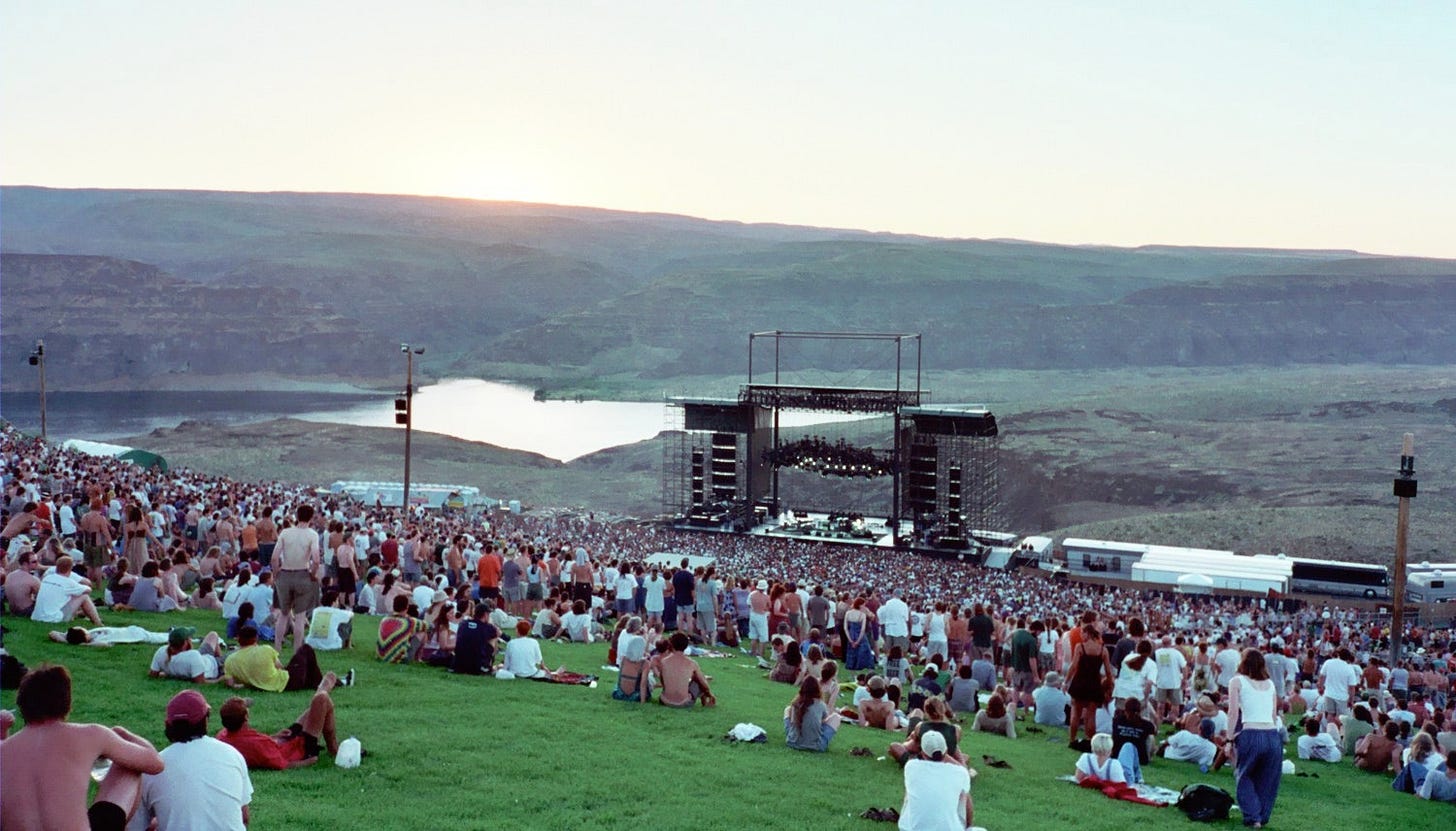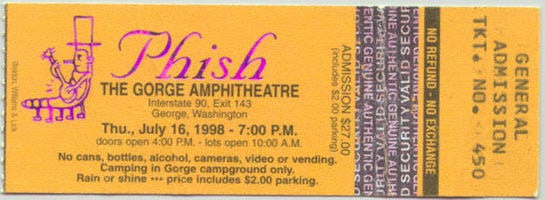
SET 1: The Squirming Coil, NICU, Stash, Reba > Fast Enough for You > When the Circus Comes, Run Like an Antelope
SET 2: Julius, The Moma Dance > Piper, Axilla > David Bowie, Tube > Slave to the Traffic Light
ENCORE: Sample in a Jar
As we are now underway in 2023 with yet another Phish summer tour, it’s the annual time of year to grapple with what a wise man once said: Sic transit gloria, glory fades. I’m not a hater about modern-day Phish, and I am full of gratitude that they keep adding years to the end of this project (see ya in 2048!). But you can’t get around the fact that there are certain classic songs in the Phish catalog that will never again reach the heights of their earlier years. At today’s shows, I appreciate the chance to spend some more time with old friends like Bowie, Antelope, or Mike’s, but it’s with lowered expectations – it’s just a natural byproduct of the passage of time that they won’t be able to match what they were in the 90s.
But simply saying that some of Phish’s Greatest Hits were better in that decade is a criminal flattening of history. In the early 90s, these songs found their initial footing; in the middle years, they were blown up to arena size and stretched out in unpredictable directions. But I would personally argue that another special thing about 1998 is that some of these classic Phish tunes were never played as consistently interesting, with just the right balance of technical proficiency and creative expansion.
Later years would see the first part dip hard, and the second part would move on to other songs in the 3.0 era. But in 1998, the band could still hit the changes and find playful ways to freshen up the improvisation. That’s on display here in the neglected first half of the shiny new Gorge ‘98 box, an evening deep in the shadow of the monster that follows. On paper, it’s an aggressively old-school setlist for the second night of a tour, with only two songs post-Hoist in attendance. But the playing within that material bears all the fingerprints of what Phish was actively working on in 1998.
Exhibit A is Reba, whose fussiness and mellow jam put it as out of favor as it had ever been in summer and fall 1997 – it was played only 3 times between Europe ‘97 and the Island Tour. Suffice to say, it’s not the type of song that lends itself to the funk reinvention that many songs underwent to stay current the previous year. That’s okay; in calling its number around sunset time at the scenic Gorge, all it had to do was not mess up the composed part too bad and recapture some of its standard beauty in the denouement.
But they find a way to do more than hit that modest goal, thanks largely to Trey wondering “what if wah…but quiet?!?” When they drop into the jam, he hops on the pedal, adding a gentle funk lilt to the Reba chords while the rest of the band stays within the normal track. It’s a fascinating hybrid, putting an extra strut into Reba’s step but also smoothing out last year’s aggressive funk habits.
Trey sticks to the bit too, playing wah guitar for 4 full minutes, shifting on a dime to a more traditional and lyrical Reba solo, then circling back to bweeooo-funk for the final two minutes as it dissolves into a double feature of dusklight ballads. It’s a Reba that couldn’t have been played in any other year, one that achieves the ethereal glide of classic versions while introducing just enough spice to keep it novel.
You could say something similar about the second set Bowie, though it doesn’t recycle the exact same trick. Bowies of old were either intensity accumulators or wild deconstructive excursions into free jazz and noise; tonight’s is much more mellow by comparison, even accessible, if you can use that term for a 19-minute performance. While it doesn’t sacrifice its usual menace, it’s cut with the calm confidence I mentioned yesterday as the defining mood of summer ‘98. Here, the MVP is Fish, who keeps the pace tightly shackled, even slowing it subtly as it nears the peak (pay attention in the 13th minute), adding a controlled determination to the jam that makes it all the more disarming when he finally lets loose.
I’m not claiming these are all-timer versions of Reba or Bowie, particularly when each has several hundred competitors. But I will argue that 1998 is a very fine vintage for both, containing not the flashiest or most unusual versions, but the performances with the Goldilocks mix of ability and playfulness. If they were never this consistently good again, at least we have the memories and tapes (and boxsets) to remember the good ol’ days.



